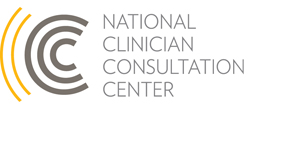Case of the Month: Indeterminate Results and Repeat HIV Testing
Case Summary
A gynecologist asked about a 30 year-old female patient who had a positive HIV1 and HIV2 antibody screen and a negative Western Blot test. The patient had undergone testing during routine preconception labs. She did not want to wait six months to retest to rule out early HIV infection not adequately excluded by a Western Blot. The patient reported being monogamous for the past 3 years, and reported no recent viral symptoms. Given the patient’s desire to retest sooner than at 6 months, is there a safe shorter time period for retest? Would any other test be helpful, such as a PCR test?
CCC Consultant Advice
Sending a viral load (RNA PCR) to rule out acute infection would be recommended, even if the patient does not have symptoms. Outside of pregnancy, it is acceptable to wait and repeat testing; however, starting antiretrovirals earlier in pregnancy (for HIV-positive patients) is associated with decreased perinatal transmission, even when adjusted for viral load values. If the patient’s viral load is undetectable, she is definitely HIV-negative. The caller should consider repeat-testing at approximately 32 weeks with both an antibody test and viral load (the patient is likely to incur additional false positive testing results). This testing is optional, but if done in advance, it can prevent labor and delivery teams from sending a rapid HIV test while on labor and delivery when faced with any risk factors (and, if positive, requiring treatment as a true positive). The caller should clearly document the patient’s follow-up testing results for other providers, especially those who may encounter the documentation in the middle of the night on labor and delivery.
For more information on routine HIV testing in practice, visit the CDC’s “HIV Screening. Standard Care.” Campaign.
Because CCC consultations are based on information provided by the caller or clinician accessing the online consultation center, without the benefit of a direct evaluation or examination of the patient, consultations are intended to be used as a guide. They do not constitute medical advice and are not to serve as a substitute for medical judgment. This Case of the Month includes consultation based on the most up-to-date evidence at the time of its publication. To learn about current recommendations, please call one of our clinical consultation lines.
 University of California, San Francisco |
University of California, San Francisco |
